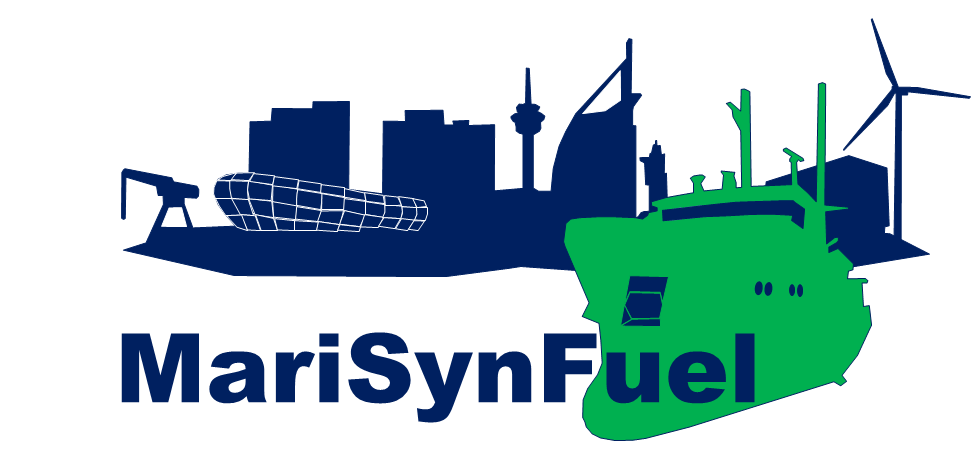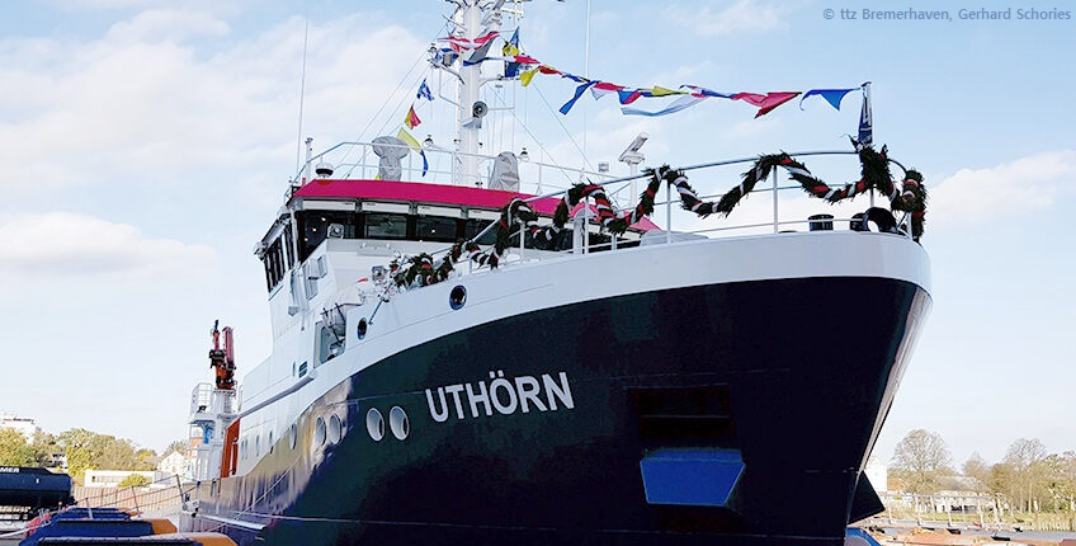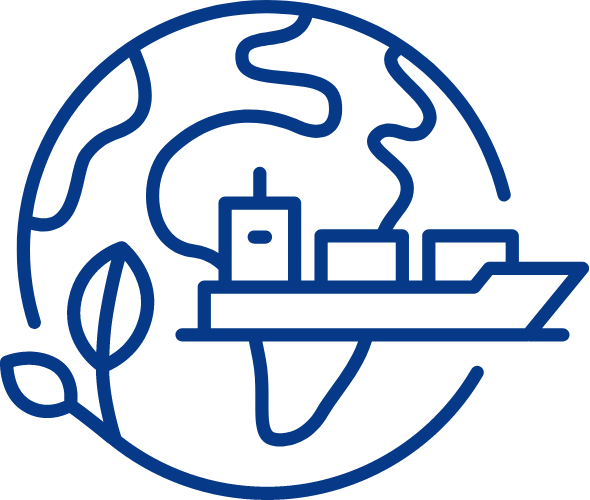MariSynFuel
Major project MariSynFuel begins in January 2023 in Bremerhaven
To develop synthetic methanol for shipping, 6.5 million euros are now available from the ‘Development of renewable fuels’ programme from the Federal Ministry for Digital and Transport (BMDV).
The Bremerhaven Technology Transfer Centre (ttz) successfully acquired the funding together with the Alfred Wegener Institute, Helmholtz Centre for Polar and Marine Research (AWI), the Institute of Shipping Economics and Logistics (ISL) and the companies UTG Unabhängige Tanklogistik GmbH, Green Fuels GmbH and Reederei F. Laeisz. The funds will be used to develop a technology for manufacturing synthetic methanol as a fuel for shipping in Bremerhaven. Numerous other companies and institutions from the region are also supporting the project.
“The project’s main objective is to establish liquid, synthetic fuels for shipping to avoid CO2 emissions from fossil energy sources through the use of hydrogen-based energy sources. Sufficient quantities of green hydrogen and recycled CO2 are a prerequisite for this, and the establishment of a corresponding infrastructure is also essential”, explained Prof. Dr.-Ing. Gerhard Schories, Head of Institute at ttz Bremerhaven. At the project’s core is the development and construction of a facility for manufacturing synthetic (‘green’) methanol on a demonstration scale in Bremerhaven and the direct use of the fuel for the newly-built research ship ‘Uthörn’ from the Alfred Wegener Institute. The vessel is equipped with two diesel engines retrofitted for methanol combustion. It was christened in November 2022 and following remaining work and testing, it is to begin service in the spring of 2023.
Climate-neutral solution thanks to ‘green’ methanol
“We want to use a method recently developed in ttz Bremerhaven for providing CO2 for the production of green methanol. CO2 is minerally-bound and the waste heat of the methanol synthesis is used as a source of energy”, described Schories.
Because methanol has favourable storage and transport characteristics, it has numerous advantages in terms of storage and handling compared to say, pure hydrogen or ammonia. It is also biodegradable, which is important in the event of accidents at sea or in port. In addition, existing tank farms and tank transporters can be converted with little effort and continue to be used. The demonstration facility which is planned is to produce at least 500 kg of synthetic methanol per day. To ensure the operation of the methanol synthesis facility and the acceptance of the manufactured methanol, a supply and distribution concept is to be prepared within the project. This will ensure an economic perspective and the preparation of a business plan, and a cost reduction in the manufacture of green methanol can be taken into account. To close the cycle, the methanol production will be in line with the fuel consumption of the ‘Uthörn’ research ship and can be directly applied there.
Lighthouse project for the seaport at Bremerhaven
Bremerhaven is the second largest seaport in Germany. This project can therefore serve as a lighthouse project in Bremerhaven and support the expansion and market ramp-up of the technology. The generation and marketing of synthetic fuels at Bremerhaven is a first, essential step towards a more sustainable, local energy supply and also contributes to becoming less dependent on the import of fossil energy sources in future.
All companies and research institutes participating in the project are located in Bremerhaven and can therefore optimally tap into regional potential as well as synergies. The demand for synthetic fuels will continuously increase over the coming years, especially in the seaports, as an increasing number of sea vessels will be equipped with this kind of drive system and it can be assumed that the bunkering behaviour of sea shipping will change (more frequent use of fuel because of reduced ranges). And so in many respects, this project can serve as a blueprint. There is a general transferability for other port cities with similar areas of application and infrastructural conditions. Furthermore, this project can be regarded as a concept for the manufacture and use of other e-fuels, like for example, e-diesel. At the same time, Bremerhaven as a scientific and economic hub is strengthened and decarbonization in the transport sector is accelerated, in this case in shipping. “Over the next four years, we will commit ourselves to these topics together with the cooperation partners from MariSynFuel and we are delighted to have drawn these funds from Berlin to Bremerhaven”, added Schories, celebrating the successful project launch in January 2023.


Project duration
01.2023 – 12.2026
Project partner
Technologie-Transfer-Zentrum (ttz) Bremerhaven
Alfred-Wegener-Institut, Helmholtz-Zentrum für Polar- und Meeresforschung (AWI)
Funding notice

»Project MariSynFuel is funded with a total of 6,5 million euros by the Federal Ministry for Digital and Transport as part of the Funding Programme Renewable Fuels. The funding guideline for the development of renewable fuels is coordinated by NOW GmbH and supported by the project management agencies VDI/VDE Innovation + Technik GmbH and Fachagentur Nachwachsende Rohstoffe e. V. (Agency for Renewable Resources).«



